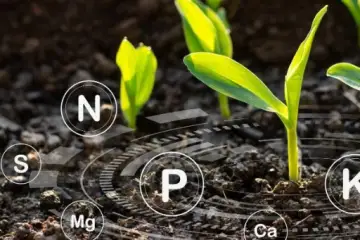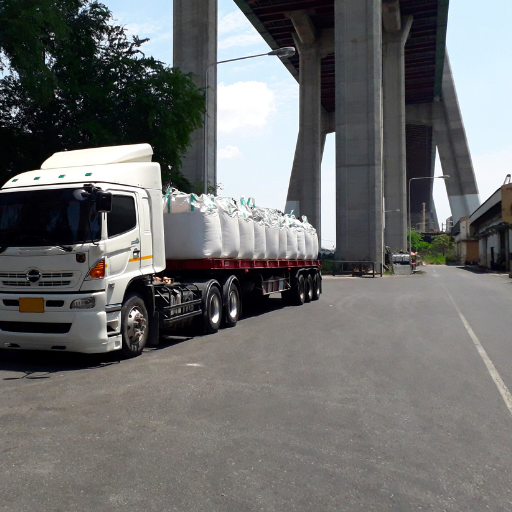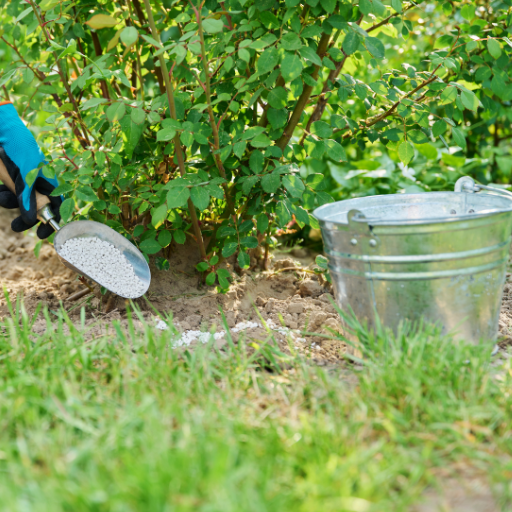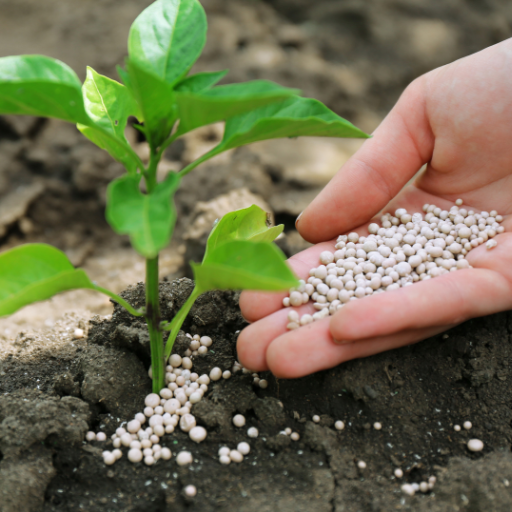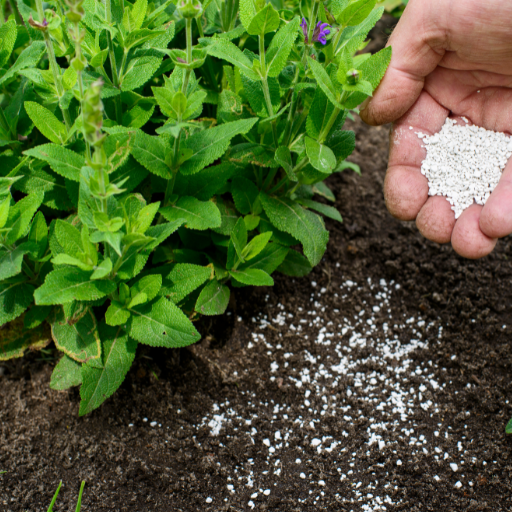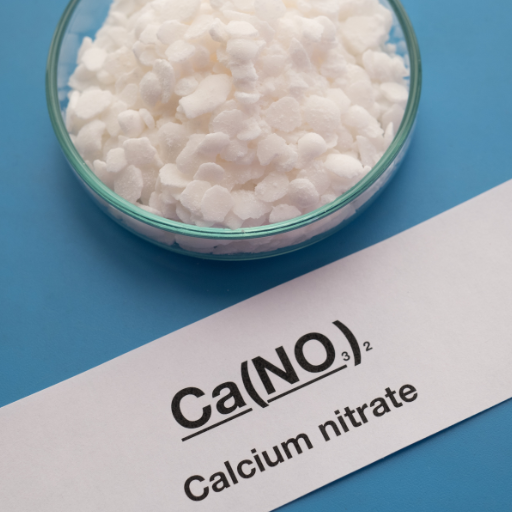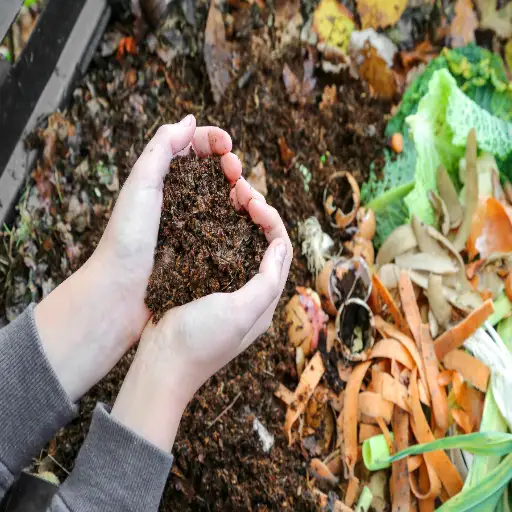Calcium nitrate fertilizer is an indispensable element in plant growth, which adds vital calcium and nitrogen to crops. Whether you are a farmer by profession or just a simple gardener at home, your plants must get the right nourishment to achieve maximum yields of productive crops and have lively, healthy plants. This article will guide you through many options available in buying calcium nitrate fertilizer, identifying the best sources, key considerations, and a few practical hints on making an informed choice. At the end of the article, one will have extensive know-how about where to buy high-quality Calcium Nitrate fertilizers for their garden or farm needs.
What is Calcium Nitrate Fertilizer?
Calcium nitrate fertilizer is a chemical made up of calcium and nitrate nitrogen, which are essential nutrients in plant growth. It can be readily dissolved by water or plants, making it an effective way to ensure the availability of necessary nutrients for plants. By giving this kind of fertilizer to your farm, you will have strong cell walls in your fruits and also stronger root systems that are immune to diseases and stresses. That’s why it is useful in soils with low Ca content or where there is limited mobility.
Understanding Calcium Nitrate and Its Benefits
Calcium nitrate has several advantages that directly influence plant health and productivity. Essentially, it provides an easily available source of calcium needed for the formation of cell walls as well as membrane structures. The result is a more robust plant with better structural stability. Furthermore, nitrates supply nitrate nitrogen which is quickly taken up by plants leading to fast vegetative growth optimization of photosynthesis.
The use of calcium nitrate in soils or growth media improves nutrient uptake, thus reducing blossom-end rot, a common disorder in tomatoes and peppers caused by a lack of enough calcium. Additionally, this type of fertilization regime has been known to enhance root system development, thereby increasing a plant’s overall resistance to environmental stresses, including droughts, diseases, etc.
- Calcium Content: Usually about 19% by weight ensuring sufficient availability for high quality crops production.
- Nitrogen Content: Around 15.5 % primarily present in form on instantly utilizable nitric acid.
- Solubility: Water soluble hence can be easily applied through irrigation systems.
- pH Impact: Slightly alkaline usually gives soil pH close to neutral-mildly alkaline, enhancing nutrient availability.
Gardeners and farmers who understand these technical parameters well can, therefore, make informed choices when selecting the most effective type/brand /formulation of calcium nitrate fertilizers to boost their crop yields and quality.
Uses in Agriculture and Horticulture
Calcium nitrate is widely used in agriculture and horticulture because of its dual role in supplying essential nutrients. It provides an excellent source of calcium, which strengthens cell walls thereby improving plant structure and resilience. Also, the nitrate nitrogen within calcium nitrate promotes vegetative growth while enhancing photosynthesis efficiency. For instance, using this fertilizer helps combat blossom-end rot in such crops as tomatoes or peppers whose yields can increase due to better nutrient uptake by plants and increased root development. Being highly soluble in water it is used for conventional soil-based application methods or hydroponic systems.
Why Choose Calcium Nitrate 15.5-0-0?
The choice of Calcium Nitrate 15.5-0-0 ensures a balanced nutrient supply for plants from both nitrogen and calcium sources that are immediately available to the plants. In addition, it has high solubility necessary for uniform utilization across different irrigation designs; additionally, its slightly alkaline pH plays a vital role towards overall nutrient absorption by roots. It significantly enhances crop health thus preventing common problems like end rotting during blossoming phase and resulting into stronger plant architecture along with efficient photosynthetic process that lead to much healthier crops borne at the end.
Where to Buy Calcium Nitrate Fertilizer Online?
Calcium Nitrate Fertilizer is available from many reputable online stores. There are several brands and package sizes on Amazon, which often come with feedback to guide your choice. Another reliable place to look for it is Home Depot, where you can get it by either going there directly or placing an order through the internet alongside other gardening supplies that may be required including calcium nitrate. Lastly, Tractor Supply Co. is an ideal place for those looking for agricultural products in particular, since its products are described in detail and have user ratings to help you decide upon one.
Best Online Retailers
Amazon is still among the best online retailers of Calcium Nitrate Fertilizer, presenting different brands and numerous packages of this product. You can sort out the items based on their customer rating and reviews ensuring that you make a good decision before purchasing any item. Home Depot has made a difference among other sellers as they have various calcium nitrate options available through either home delivery or pick up at their outlets depending on individual clients’ preferences and gardening needs. The Tractor Supply Co offers specialized agricultural products which include calcium nitrate with well-written product descriptions and user reviews meant to aid in product selection.
Customer Reviews & Ratings
There are clear distinctions between online shopping platforms based on customer ratings and reviews. On Amazon, convenience delivered at your doorstep and availability of many items dominate the thoughts of customers who comment frequently. This website also gets much credit for accurate star ratings attached to a detailed review thereby making majority users take informed choices about purchases they want to make while others indicate how reliable they find services provided by Home Depot such as allowing consumers to collect them instantly after ordering; recently this practice has been widely appreciated by clients as well. Finally, when talking about high quality specialized agricultural chemicals one can’t leave Tractor Supply Co behind because it’s always positively mentioned in this context most often achieved due to thorough information given along with product comments and customer remarks.
Factors to Consider When Buying Online
When purchasing calcium nitrate fertilizer online, several things must be considered to make the right choice for your needs. To begin with, analyze the chemical composition of the product as well as its technical specifications. Commonly, reliable sellers like Amazon, Home Depot and Tractor Supply Co always provide nitrogen and calcium content information which enables one to know exactly what they are buying from them. The other thing is checking how it is packaged. These retailers incessantly offer a range of capacities such as small home gardening bags or large agriculture ones so you can pick up whichever suits you best.
Shipping and delivery terms also matter. For example, Amazon might have faster shipping options for Prime members while Home Depot allows for picking up products at their stores any moment one decides to go there. Tractor Supply Co may have specified shipping regulations concerning huge purchases that are mostly applicable to broader agricultural undertakings depending on their size. Another important factor here is who sells this product? Customer reviews and ratings on these websites can provide valuable insights into the effectiveness of the fertilizer, user experiences, and the overall quality of service the retailer provides.
Lastly, look at price-to-value ratio. By comparing prices between these sites in accordance with specifications and reviews available you will end up with a great purchase decision. Moreover, bulk acquisitions tend to be cheap when calculated per each unit helping those requiring large amounts of supplies cut on expenses incurred in acquiring them. Thus considering all these issues will enable you satisfy yourself adequately knowing that whatever you buy is worth its pricing.
Where to Buy Calcium Nitrate Fertilizer Locally?
To buy calcium nitrate fertilizers locally, many options exist. Calcium nitrate is a form of fertilizer that can be found at Home Depot in the garden section, among other gardening supplies. If out of stock, their website may have details about local availability. Another option is Lowe’s; they normally have calcium nitrate fertilizers in their lawn and garden department, and you can check online to determine if it’s available at one of their stores near you. Tractor Supply Co., on the other hand, sells calcium nitrate fertilizer and has one of the most robust stock-checking websites hence they will confirm its availability before you leave.
Where to Find Local Agricultural Supply Stores
Using search engines such as Google would be an extremely important way to identify local agricultural supply stores. For instance, Agri Supply, Farmers Cooperative and Rural King are some of the frequently returned top searched results for agriculture supplies on internet sites like these. Agri Supply sells numerous farming tools and equipment including fertilizers with many locations around the country as seen on their website. In addition to having various farming products in store from which their experienced staff can provide information on them Farmers Cooperative usually operates within southeastern United States. Moreover there are several branches established by Rural King – major retail shop providing diverse kind of agriculture commodities (e.g., calcium nitrate fertilizer) where people live especially down Midwest up to Southeast also it pinpoints them when visited via web store locaters . Look for exact addresses and availability status on these sites.
Local Nurseries’ Greenhouse Grade Fertilizers
Sometimes finding greenhouse grade fertilizers at nearby gardens centers can be as simple as visiting highly-rated websites that offer information about local nurseries and indicate whether or not certain nursery items may be found there for sale . This includes a directory of nurseries produced by Bonnie Plants that contains comprehensive inventory lists containing even specialized green house use compatible fertilizers . Also Nature Hills Nursery offers greenhouse-grade fertilizers that can be found through its vast online catalog as well as guides to help you in locating nearby nurseries. Moreover, the Home Depot’s Garden Center is a great option where users are able to type in “greenhouse fertilizers” and check availability of such products at the nearest retail point before actually visiting it.
Questions for Your Supplier
When searching for fertilizers, it’s important to ask any queries related to buying from suppliers so you may get the best ones. The following are some critical questions:
- What kinds of fertilizers do you stock? This will enable you to determine whether various types of fertilizers are available, including those for greenhouses or agricultural purposes and with specific nutrients, such as calcium nitrate.
- Where do your products come from? This will inform you about their quality and how they relate to your farming or garden activities.
- How much does it cost, and what are the conditions for bulk orders? By doing this, one can determine whether there is a way to cut costs by purchasing huge amounts of fertilizer at once.
- Do you offer any expert advice or support? It is beneficial if these experts are available at the supplier’s premises to advise on proper use of fertilisers based on crop type.
- Are there delivery options and what are the associated costs? When time is scarce or physical store locations are far away, understanding how these products will reach your destination matters most.
Asking your supplier these questions will help simplify the process of obtaining high-quality fertilizers tailored to your specific needs.
How to choose the right supplier
There are several crucial steps in selecting the right supplier. Initially, conduct online research on various potential suppliers and check on their reputation within that industry as reflected on the feedback and testimonials provided by other customers. You also need to assess if they have a diversified range of products so that they can provide you with appropriate fertilizers. Equally important is to evaluate their sourcing standards to ensure high quality and adherence to industry regulations. Additionally, compare prices and availability of bulk purchase discounts to obtain maximum value for your money. Finally, prioritize those who offer good customer service such as expert advice and delivery options.
Customer Service Support System
When evaluating customer service support systems, leading websites suggest looking for suppliers who offer comprehensive assistance, including knowledgeable staff that can give you expert advice on how to use the fertilizer specifically meant for your crops or plants. This will often involve having easy means of communication like telephone calls email or live chats where any queries can be quickly answered.
For delivery options, confirming whether the supplier provides delivery services to your location is essential and understanding any associated costs is essential. For example, some suppliers may have free shipment provisions for large orders or within a particular radius. In contrast, others may charge according to the distance covered or weight of an order placed. Checking the delivery time is also essential in ensuring prompt arrival of your order at its destination. Moreover, tracking services allow you monitor progress of your orders thus adding credibility.
- Delivery Radius: Suppliers only deliver up to certain distances from their premises.
- Delivery Fees: The charges incurred when ferrying goods to one’s place which might either be flat-rate based or cost per kilogram/km/mile.
- Delivery Timeframe: From the point of ordering until product delivery, which depends mostly on the size ordered and other variables like the distance travelled by supplier trucks.
- Order Tracking permits clients to examine where their goods are in real time through monitoring systems during transportation and receipt at destinations.
This will help you identify the suppliers who can provide reliable customer service as well as effective delivery options.
Regulatory Concerns and Certifications
When selecting suppliers, it is critical to ensure they comply with relevant regulatory standards and possess necessary certifications to validate their operations. Such regulations and certifications may vary from one sector or locality to another, hence assuring that products are safe, of good quality, and environmentally friendly.
- Compliance with Local and International Standards: Suppliers should adhere to both local regulations for their industry and international guidelines for their goods or services. For example, ISO certifications, FDA approvals on medical supplies, CE markings for goods sold within the European Economic Area (EEA).
- Environmental and Safety Certifications: Environmental sustainability and safety are key concerns in today’s market. This is confirmed by certificates such as ISO 14001 for environmental management or OHSAS 18001 for occupational health and safety, which show suppliers’ commitment to these areas.
- Industry-Specific Certifications: Depending on the industry, other specific certifications could apply. Food providers, for instance, might require HACCP certification to demonstrate compliance with food safety principles.
By ensuring suppliers meet regulatory standards and have appropriate certifications, you are able to mitigate risks and guarantee the quality and safety of purchased commodities.
How to Choose the Best Calcium Nitrate Fertilizer?
When selecting the best calcium nitrate fertilizer, the following factors should be taken into account:
- Purity and Quality: Search for products of high purity to ensure that your plants obtain the best and most uniform nutrition. The fertilizer needs to be contaminant-free since impurities can damage your plants and soil.
- Nutrient Composition: Make sure the fertilizer contains a balanced combination of nitrogen and calcium in percentages noted on the packaging. This helps to support healthy plant growth, better fruit quality and prevent blossom end rot in crops like tomatoes and peppers.
- Solubility: Always go for highly soluble calcium nitrate fertilizers which dissolve easily in water for use with fertigation systems or foliar sprays. It is especially important when using drip irrigation systems or foliar applications.
- Brand Reputation: Select a brand with a good reputation based on quality products. Use customer reviews from other growers to have information if it work for them or not
- Formulation: The appropriate formulation has to be selected depending on the method of application, whether granulated, liquid, or crystalline. Each type has particular benefits but may be more suited to certain situations or crops.
Reading Customer Reviews
To judge its performance level, check for comments about product effectiveness from customers who recently used this calcium nitrate fertilizer. Read through users’ feedbacks regarding improvements made in plant health, yield etc., giving you an idea of how good it will likely enhance growth on your vegetables. Take note of any common problems indicated such as difficulty in dissolving fully or inconsistencies arising from changes in nutritional content over time. Experienced farmers’ reviews can shed light concerning ease of use as well as general satisfaction with the product while providing information about specific crops and what their growing conditions entail thus enabling you make informed buying decisions.
Checking Product Descriptions and Labels
Confirm that the description includes enough details about nutrients present, safety measures required during application among others; check whether there is enough information to guide application process. This can be done by considering the amount of calcium and nitrogen present in the product as well as whether the formulation suits your particular crops and soil conditions. Take notice of any recommended usage instruction, storage requirements, compatibility with other fertilizers or soil amendments. The information will enable you avoid wrong application or storage problems that may arise later on.
Recommendations for Different Plants
Regarding tomatoes, using calcium nitrate fertilizer can significantly improve fruit quality and minimize risks associated with blossom end rot. At planting time, apply around two tablespoons per plant, then side dress every 4-6 weeks at this same rate. To allow nutrients to be taken from the plants, ensure there is always constant moisture in the soil.
For leafy greens like lettuce and spinach, additional growth of leaves resulting in tip burn can be achieved by using calcium nitrate. This solution can be added at a rate of one tablespoon per gallon of water once in fourteen days when sprayed onto foliage. This enables fast absorption and corrects any immediate need for calcium.
Use calcium nitrate to develop the roots of root vegetables such as carrots and beets. 2 to 3 pounds per 1,000 square feet worked into the soil before planting creates a good foundation. During the growing season, apply a side dressing of 1 to 2 pounds per 1,000 square feet every 4 to 6 weeks. Maximum effectiveness requires maintaining the same level of soil moisture at all times.
How to Use Calcium Nitrate Fertilizer Effectively?
The first step to using calcium nitrate fertilizer correctly is to determine the specific nutrient requirements of your plants. Soil testing, which measures existing levels of calcium and nitrogen, will help you determine the correct amount of application. For general use, dissolve calcium nitrate in water at a rate of about one or two tablespoons per gallon for root drench or foliar spray. Granules are mixed with the soil around the base of the plant and then deeply watered to aid absorption into soil, for soil application. Do not use too much as it can cause an imbalance of nutrients or burn plants; read manufacturer instructions carefully and follow them accordingly according to each species’ needs.
Application Rates and Methods
Precise application rates and methods must be followed when applying calcium nitrate fertilizer to achieve the best possible results on plant growth and health. For leafy vegetables, you can dissolve 1-2 tablespoons of calcium nitrate in a gallon of water for foliar spray. The solution should be repeated every second week to improve leaf development and prevent deficiencies.
For root vegetables like carrots and beets, pre-planting soil application should incorporate 2 – 3 pounds of calcium nitrate per 1000 square feet. During the growing season, maintain a side dressing every 4 – 6 weeks using one pound to two pounds per thousand square feet.
When dealing with fruiting plants such as tomatoes, peppers, cucumbers, etc., apply one/two tbsp per gallon of water through root feeding or leaves that act as drenches if you have no idea how they are technically called (root drenches). This should continue every two/four weeks, depending upon their growth stages and deficiency experienced.
What are some technical parameters that need considering?
Ensure that soil pH is just within the optimal range (6.0-6.5 for most vegetables) to facilitate the absorption of nutrients.
Keep soil moisture uniformly distributed so that the maximum amount of nutrients is absorbed and no leaching occurs.
Do a soil test for nutrient deficiencies before deciding on the application rates.
Therefore, follow guidelines given by manufacturers and plant species specific requirements as overdoing it may result in nutrient disharmony or even burnt crops.
Dealing with Calcium Deficiencies in Plants
Distorted leaves, slow growth and problems like blossom end rot in tomatoes and peppers or tip burn in leafy greens are symptoms of calcium deficiencies. To resolve such issues, it is necessary to ensure enough calcium in the soil. One way of achieving this is by adding lime or gypsum into the soil which may increase calcium levels as well as correct pH imbalances. An immediate remedy could be using foliar spray containing calcium nitrate for faster results. Essentially, regular testing of soils as well as monitoring should be conducted to maintain appropriate quantities of calcium and sustain plants’ health output.
Foliar Feeding: Tips and Techniques
Directly supplying essential nutrients onto leaves through foliar feeding can have rapid uptake responses because it mostly affects the foliage directly. It’s beneficial when soil provides limited amounts of these nutrients due to poor conditions or symptoms of deficiency appearing on plants.
Tips for Effective Foliar Feeding:
- Timing Is Everything: Apply your foliar feeds early in the morning or late evening hours so as to reduce evaporation rate thus preventing scorching effect on leaves. High temperatures and direct sun light leads to faster evaporation reducing nutrient absorption rates which otherwise might harm a plant.
- Always comply with the manufacturer’s instructions on dilution rates. Overconcentrated formulas can lead to leaf burn, while very diluted ones will not provide necessary nutrients.
- Full Coverage: Apply uniformly to both upper and lower leaf surfaces. A fine mist sprayer may achieve better coverage without runoff.
- pH Balance: Spray solution should have a pH of 5.0-6.5 because extremely low or high pH levels affect nutrient availability and uptake efficiency.
Technical considerations:
- Nutrient Balance: According to Penn State Extension, foliar feeds formulated to prevent or correct deficiencies should include adequate macro- and micronutrients that suit the needs of the particular plant.
- Spray Frequency: Foliar feeding is generally applied every two to four weeks, depending on the plant’s response and environmental conditions. Reapply according to Clemson Cooperative Extension, particularly during periods of fast growth or visible deficiency symptoms.
- Water Quality: Use clean, distilled, or rainwater when preparing foliar solutions. Kansas State University points out that hard water interferes with nutrient absorption due to its impurities.
Foliar feeding that adheres to these techniques and parameters can significantly enhance plant health and yield, ensuring that essential nutrients are available when the plants need them most.
Reference sources
- 7springsfarm.com
- Summary: This source offers Calcium Nitrate 15.5-0-0 fertilizer in a 50 lb bag. It highlights the product as one of the most commonly used sources of nitrogen, emphasizing its value in gardening and professional cultivation.
- Amazon.com – Southern Ag Calcium Nitrate
- Summary: The listing on Amazon presents Southern Ag Calcium Nitrate in a 5-pound bag. It provides a convenient option for purchasing this fertilizer online, catering to both hobbyists and professionals in need of a smaller quantity.
- growhoss.com – Calcium Nitrate Fertilizer
- Summary: This website offers Calcium Nitrate Fertilizer in varying sizes, including a 1-pound option. The product is highlighted for its fast-acting nitrogen source and calcium content, promoting better quality in fruits and vegetables. The fertilizer is described as fully water-soluble for easy plant uptake.
Frequently Asked Questions (FAQs)
Q: Where can I buy calcium nitrate fertilizer for my garden?
A: You can buy calcium nitrate fertilizer from various sources such as local garden centers, hardware stores, and online marketplaces like amazon.com. Make sure to purchase from a reputable supplier for the best quality product.
Q: Is calcium nitrate fertilizer fully water soluble?
A: Yes, calcium nitrate fertilizer is fully water soluble, making it easy to apply and ensuring that nutrients are quickly available for plant uptake.
Q: What benefits does calcium nitrate fertilizer provide for plant growth?
A: Calcium nitrate fertilizer provides essential nitrogen and calcium, which are crucial for robust plant growth. It helps to prevent blossom end rot in tomatoes and peppers, improves cell wall strength, and enhances overall plant health.
Q: How much calcium nitrate should I apply per plant?
A: The general recommendation is to apply around 1-2 pounds per 50 feet of row or 1 cup per 50 feet of row, depending on the specific needs of your plants. Always refer to the manufacturer’s instructions for precise application rates.
Q: Can I use calcium nitrate fertilizer for hydroponics?
A: Absolutely. Calcium nitrate is a popular choice for hydroponic systems due to its water solubility and the essential nutrients it provides. Brands like Masterblend and PowerGrow offer hydroponic-specific formulations.
Q: How should I mix calcium nitrate fertilizer for foliar spray?
A: For foliar spray, mix 1-2 tablespoons of calcium nitrate per 1 gallon of water and spray the solution directly onto the foliage. This delivers nutrients directly to the leaves for faster absorption.
Q: Are there any shipping restrictions for calcium nitrate fertilizer?
A: Shipping restrictions for calcium nitrate vary by region due to its chemical composition. Always check with the retailer for any specific shipping info and additional information regarding regulations in your area.
Q: Can calcium nitrate help with tomato and pepper plants?
A: Yes, calcium nitrate is particularly effective for tomato and pepper plants as it prevents blossom end rot and supports vigorous growth, ensuring healthy fruit development.
Q: What is the recommended application method for calcium nitrate fertilizer?
A: Calcium nitrate can be applied as a side dressing, maintained at 2 inches away from the plant stems, or dissolved in water for a soil drench or foliar application. Ensure even distribution for optimal results.
Q: Does calcium nitrate fertilizer contain other nutrients besides nitrogen and calcium?
A: While the primary components are nitrogen and calcium, some formulations may include additional nutrients like magnesium. Check the product label for specific contents to ensure it meets your garden’s needs.


